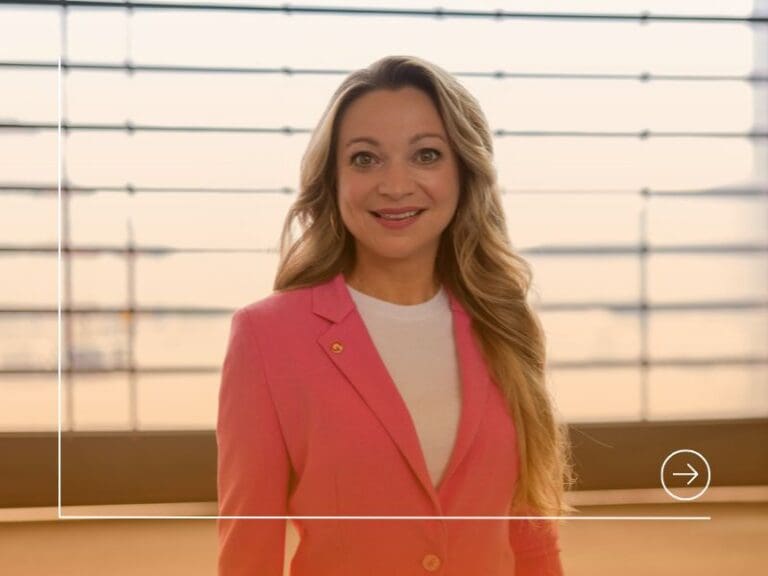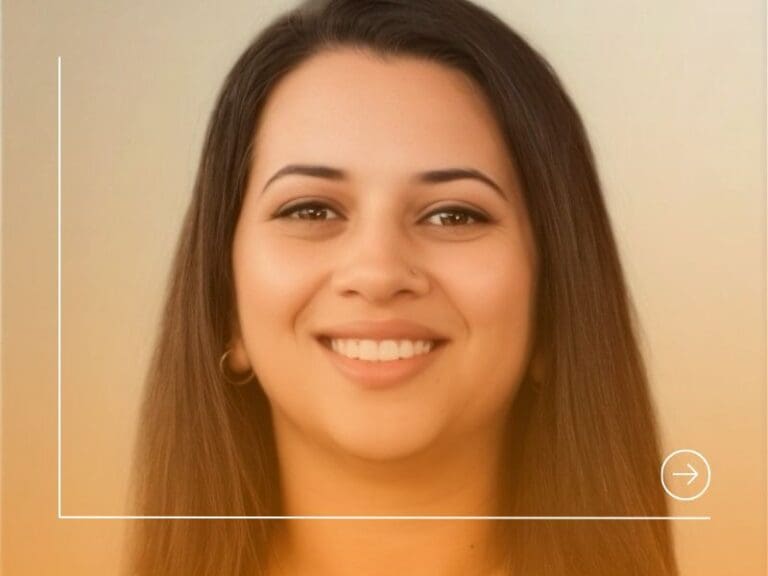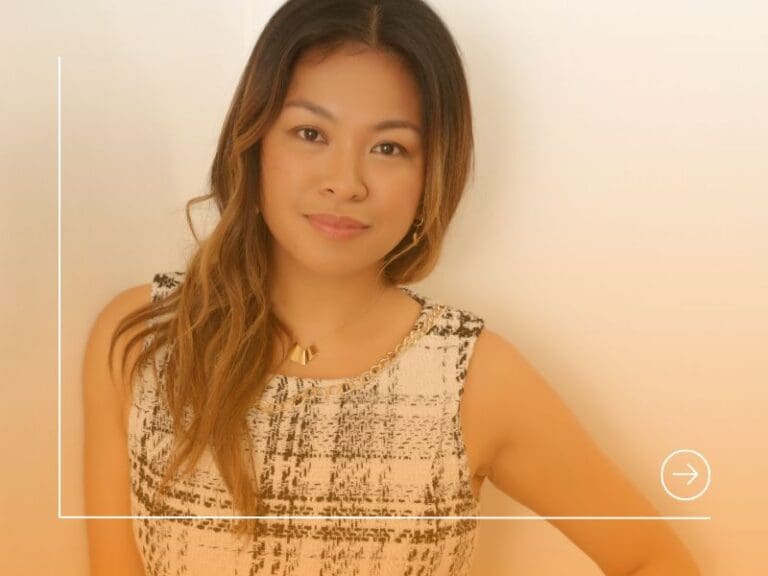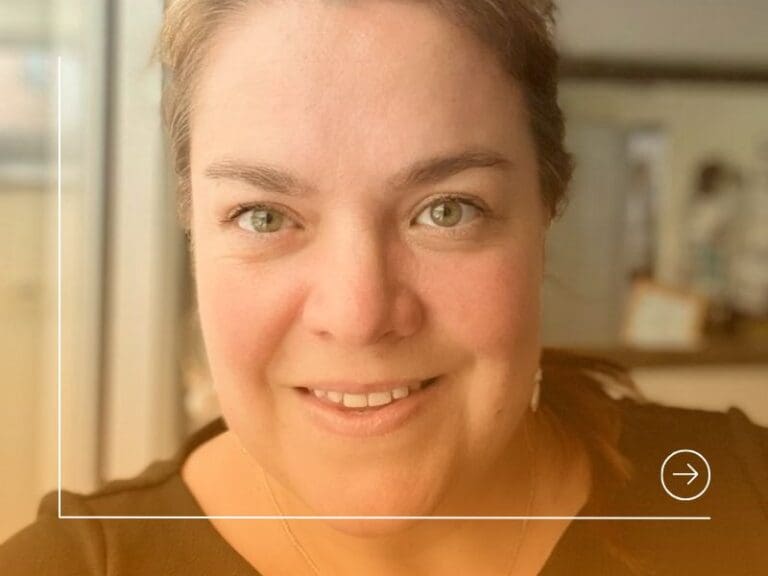Caz Brett is a product leader and designer, with an interest in human-centred leadership and behavioural psychology.
Caz is a trained coach, counsellor and facilitator. She works with empowered teams to create inclusive work culture and create impactful products that humans love.
How did you land your current role? Was it planned?
Not even slightly! My route into tech has been anything but linear. I actually studied archaeology at university and started my career in retail and gained experience in a few other sectors before joining Smartsheet. I never thought of myself as “technical” back then but along the way – especially during a period in banking where I did a lot of data entry – I started to realise how powerful technology truly is. I learned how to navigate different systems, and eventually, how to connect them and automate processes. It was never a grand plan, I just followed my curiosity and made things work better wherever I went. That’s what led me into Product Management; I saw an opportunity to build and improve on how we work, and was fortunate to have some brilliant mentors who championed me along the way. They saw the raw skills I had, and helped me understand how those could be leveraged. This has been a theme – I’ve had some wonderful champions at Smartsheet who have supported my journey, and helped me continue to grow and build my skills.
What are the key roles in your field of work, and why did you choose your current expertise?
In my world – which is product and platform operations – it’s really about the hidden infrastructure of digital work: things like integrations, audit trails, data flow, and automation. These are the bits most people don’t see but rely on every day. I chose this area because I’ve always been fascinated by how things really work behind the scenes. It’s like archaeology for the digital age – uncovering and improving the foundations that everything else is built on. There’s a real joy in making systems smarter and people’s lives easier, especially at scale.
Did you (or do you) have a role model in tech or business in general?
I wouldn’t say I had one single role model, but I’ve learned from a lot of people along the way – sometimes by observing, sometimes by mirroring (and improving) things they do. I’m drawn to people who lead with empathy, who can command a room quietly, who show strength without being the loudest voice. I’ve also learned loads from people I didn’t want to be like – those experiences are just as valuable.
What are you most proud of in your career, so far?
Honestly, it’s building a career in a space where I didn’t even realise I belonged. I didn’t have the language for what I was good at until later – automating systems, improving workflows, connecting the dots – and I’m proud that I kept showing up, kept learning, and found ways to make a meaningful impact. I’m also proud of the people I’ve mentored and helped along the way, especially women trying to find their voice in very male-dominated environments.
What does an average work day look like for you?
My role has so much variation, it’s never the same day in and day out! On some days I’ll be leading customer sessions, hearing their feedback and understanding how we can make our product even better, or adapt to their emerging needs. Other days, I’ll be working with the team on shipping new features, working on our future strategy, or helping us prioritise what’s important for the business. Although my role is primarily about connection and strategy, I’ll admit it gives me a lot of pleasure on quieter days to get a cuppa and work through some SQL queries to help dig into our metrics.
Are there any specific skills or traits that you notice companies look for when you’re searching for roles in your field?
Soft skills are everything. I know people say that a lot, but really – they’re everything. You can be the smartest person in the room, but if you can’t communicate, can’t build trust, can’t read the room, it’s going to be a struggle. People don’t make decisions from a spreadsheet, they make them based on who they feel they can trust. So things like empathy, listening, and clarity matter just as much as your technical chops.
Has anyone ever tried to stop you from learning and developing in your professional life, or have you found the tech sector supportive?
Early on, absolutely. Especially in environments where being quiet and invisible was the best way to survive. There were places where I was overlooked, underestimated, or just not seen at all. Tech can be supportive, but you need to find the right places and the right people. The higher up you go, the lonelier it can get, especially as a woman. That’s why building your own support system is so important – you need people who’ll grow with you, challenge you, and keep you grounded.
Have you ever faced insecurities and anxieties during your career, and how did you overcome them?
I’ve experienced a lot of insecurity and anxiety over the years – and I’m not sure if this is something you overcome, I think these worries and fears always lie at the edges of our confidence, no matter how senior or successful you are. Perhaps one thing that eases that feeling is knowing that it’s a universal feeling, and I’m not alone in it. It doesn’t make it go away, but it helps in those moments to recognise that these feelings will pass. I once worked with a C-suite person who I always considered to be compelling and confident on stage. I once commented to them how much I admired their stage presence, and they confided in me that they found public speaking incredibly nerve-wracking, and was seeing a coach to get over those nerves. Perhaps our insecurities are what keep us growing and striving for better, and if we didn’t have those insecurities, and thought we couldn’t grow or learn any further, that’s a worrying sign – because then we become blind to our own areas of development.
Entering the world of work can be daunting. Do you have any words of advice for anyone feeling overwhelmed?
You don’t have to have it all figured out. Most of us didn’t and still don’t. Don’t be afraid to build your own version of success, not someone else’s. Find your people. Take notes. Celebrate the invisible work. You’re more capable than you think.
What advice would you give other women wanting to reach their career goals in technology?
Build your network early and be intentional about it. Think of yourself as a start-up: who do you need around you to grow? Some people will be mentors, some collaborators, some sounding boards. Not everyone will look like you or think like you, and that’s a good thing. Also: make your work visible. Speak up for yourself. Keep receipts. And never underestimate the power of watching the room – it teaches you more than any manual.








